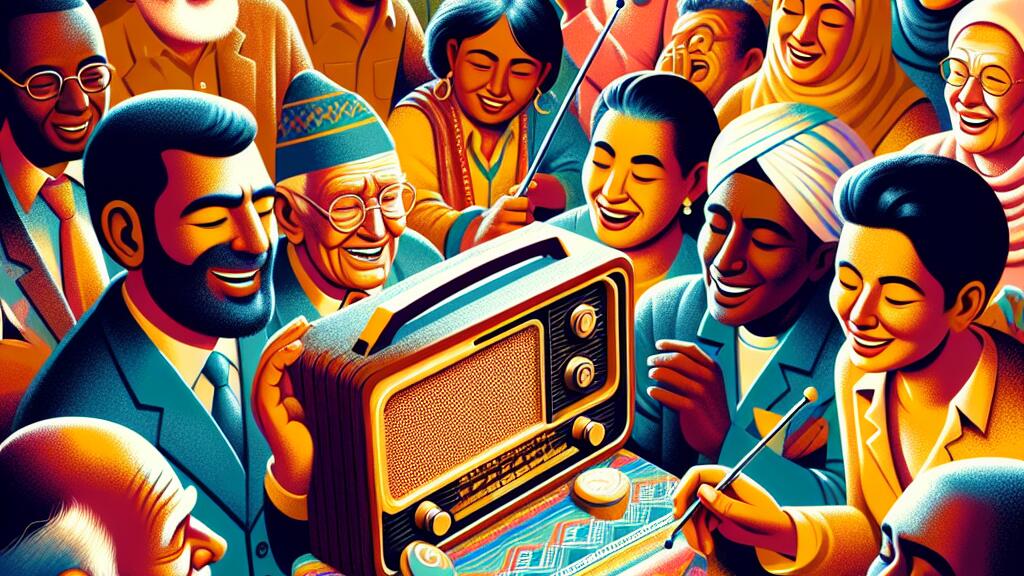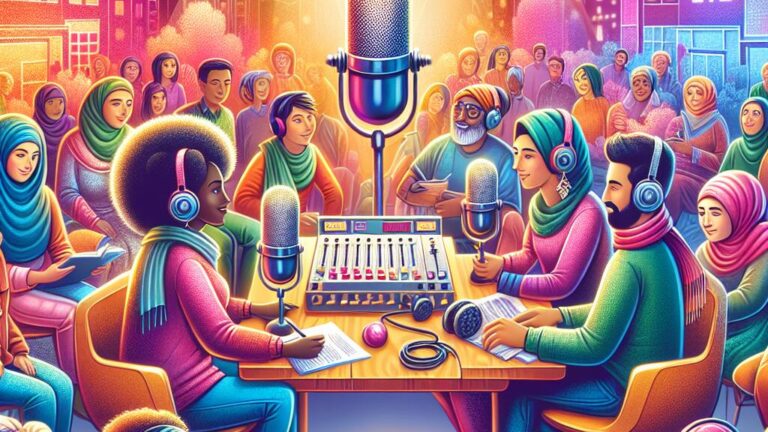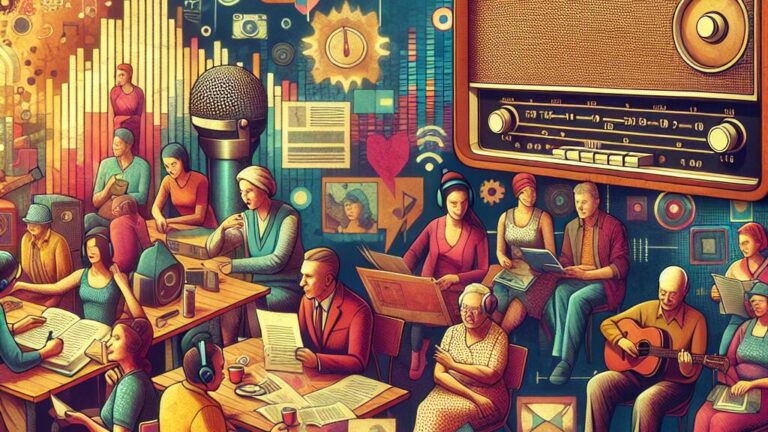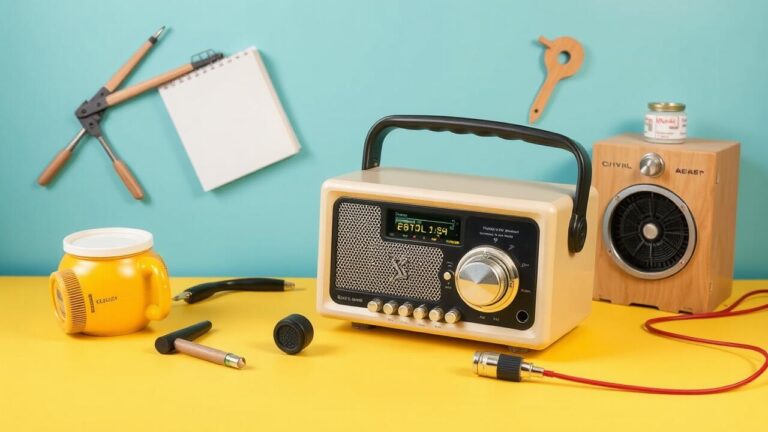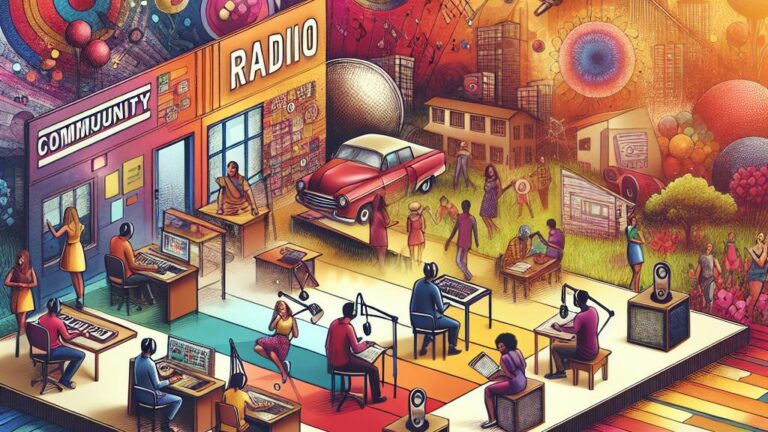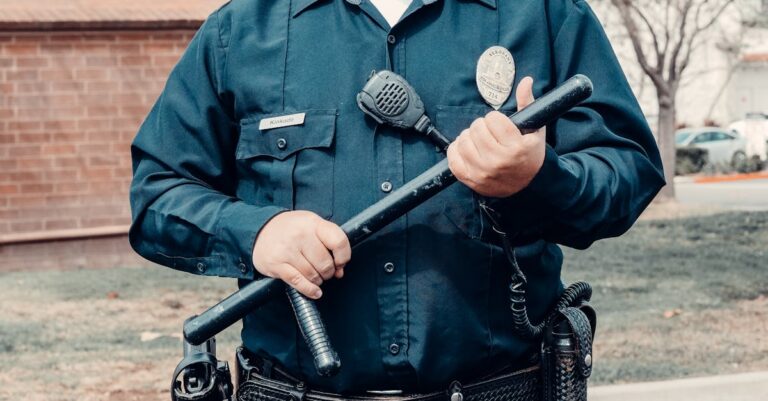What to Consider When Planning a Music Show on Community Radio
Table Of Contents
Key Takeaways
- Grasping the Function of Community Radio Stations: Community radio stations play a crucial role in promoting local music events and engaging with the audience. Understanding their role is vital for a successful music show.
- Factors to Keep in Mind When Organizing a Music Event: When programming a music event, considerations such as target audience, music genre, and timing are essential for a well-received show.
- Organizing and Getting Ready for the Concert: Proper planning and preparation are key to ensuring a smooth music show, including logistics, equipment, and artist coordination.
- Carrying Out the Music Show: The successful execution of the music event involves managing the flow of the show, addressing technical issues promptly, and ensuring audience engagement throughout.
- Significance of Efficient Promotion for a Music Show: Effective marketing is crucial for attracting an audience to the music show and creating a buzz around the event.
- Managing Finances and Leveraging Community Resources: Show budgeting and utilizing community resources can help in reducing costs and expanding the reach of the music event.
- Determining Successful Outcome and Influence of the Show: Evaluating the impact of the music show on the community and audience engagement is essential for defining the success of the event.
Understanding the Role of Community Radio Stations
When delving into the realm of community radio stations, it’s essential to understand the multifaceted role they play in shaping local narratives. Community radio stations are not just broadcasters; they are the heartbeat of a neighborhood, amplifying voices that may otherwise go unheard. These stations serve as a platform for various shows and events, including music shows that bring people together through the universal language of music. When planning a music show on a community radio station, considerations must be made towards ensuring a diverse playlist that caters to different tastes and preferences. Furthermore, the atmosphere and tone of the show should be carefully curated to engage the audience and create a sense of excitement. With the right guidance and a dedicated team, a music show on a community radio station can reach beyond its airtime to leave a lasting impact on listeners and the community at large.
| Show Title | Host | Genre | Playlist Diversity | Engagement Level |
|---|---|---|---|---|
| Community Grooves | Emily Parker | Eclectic Mix | High | Interactive segments and listener requests |
| Neighborhood Beats | Carlos Sanchez | Hip Hop and R&B | Medium | Guest interviews and local artist features |
| Melodies of the Streets | Sarah Johnson | Folk and Acoustic | High | Live performances and community spotlight |
| Rhythms of Unity | Mohammed Ali | World Music | High | Cultural insights and listener participation |
Identifying the Purpose and Objectives of a Community Radio
When planning a music show on community radio, it is essential to consider various aspects to ensure its success. Understanding the audience demographics and preferences is crucial in selecting the right music selections that will resonate with the listeners. Additionally, engaging with the community and incorporating local events such as food festival ideas or house concerts can help build audience loyalty and create a connection with the residents. By focusing on creating unique and engaging content, such as hosting band festivals or DJ double features, community radio stations can attract a diverse audience and maintain their listenership.
Another important aspect to consider is the quality of audio sources and sound signature to deliver a professional and captivating listening experience. By paying attention to transitions and sound edits, community radio stations can ensure a seamless and enjoyable broadcast for their listeners. It is also vital to conduct test broadcasts to identify any areas of improvement and refine the overall production quality. Incorporating engaging elements like contests, giveaways, and audience interactions can further enhance the show’s appeal and encourage listener participation.
Examining the Unique Opportunities Presented by Community Radio Stations
When considering what to include in planning a music show on a community radio station, it is crucial to take into account various factors such as the audience demographic, program length, music playlist, and broadcasting constraints. Community radio stations offer the unique opportunity for flexibility in programming contents while staying rooted in community involvement. By setting up music shows that cater to the preferences of the local community, stations can engage listeners effectively and promote positivity through their broadcasting.
Engaging the audience through interactive shows and promoting community activities on air can enhance the overall output of the station. With the freedom to host a variety of specialist shows and recruit guest speakers, community radio stations have the strength to provide diverse programming that caters to different age groups and interests within the community. By leveraging the resources provided by the community media association, stations can create a platform for discussion, education, and entertainment, ultimately fostering a sense of belonging and participation among listeners.
Aspects to Consider When Programming a Music Event
When Programming a music event on Community Radio, there are essential aspects to consider. The concert date holds significance as it impacts audience turnout and artist availability. Choosing the appropriate venue like House of Blues can set the ambiance right. Identifying the desired audience, whether fans of pop stars or garage MCs, is crucial for tailoring the show’s content. Selecting the right talent, such as Jamie N Commons for a folk music festival or chamber music sessions, influences the overall success. Considering each other’s viewpoints and engaging the audience through contests or giveaways foster community accountability and access. Utilizing FM frequencies or online platforms like www.kcsb.org enhances reach. By carefully planning in this manner, the music event can resonate effectively with the target audience and the broader community.
Choosing the Appropriate Date and Venue for the Concert
When planning a music show on community radio, selecting the appropriate date and venue is a critical task. The decision on the date should align with the event goals and desired audience preferences to maximize reach and appeal. Considering factors such as the availability of the target demographic, other competing events in the area, and local community activities can help in narrowing down the best time to host the show. Similarly, choosing a venue that complements the music genre, offers the necessary amenities, and has good accessibility can significantly impact the success of the event. Prioritizing the comfort and convenience of both the performers and audience should be of utmost importance when finalizing the location for the concert.
It is important to be mindful of various aspects when selecting the date and venue for a music show on community radio, such as coordination with other local events, licensing requirements, and ensuring that the venue aligns with the show’s theme and purpose. Radio station identifiers should be strategically placed at the site for brand visibility, and priority must be given to electronic health and safety protocols for everyone attending. Taking into account the flow of traffic, available parking spaces, and ease of travel to the venue can enhance audience participation and bonding. Additionally, considering features like backstage facilities, seating arrangements, and proximity to accommodation options can contribute to the overall hospitality and comfort level, ultimately enhancing the listener’s experience of the radio show.
Identifying the Desired Audience and Their Preferences
Understanding the desired audience and their preferences is crucial when planning a music show on a community radio station. Factors such as lifestyles, age groups, and interests should be considered to tailor the content to the target demographic. Teenagers, for example, may enjoy shows related to music, arts, or upcoming events like the “Girls Rock Camp Alliance” or “Asian Arts Festival.” Identifying topics that resonate with the audience can help attract and retain listeners, making the show more engaging and relevant. By analyzing broadcasting habits and preferences, radio producers can fine-tune their content to match the tastes of their listeners, creating a more immersive and enjoyable experience for everyone tuning in to the station.
When planning a music show on community radio, it is essential to understand the diversity of the audience and their preferences. Whether it’s discussing the latest hits or showcasing local talents, the content production should reflect the interests and spirit of the listeners. Utilizing social media profiles, discussion shows, or email marketing channels can help gather feedback and insights on what resonates with the audience. Engaging with listeners through call-ins, forums, or online quizzes can also provide valuable information on their preferences and expectations. By incorporating these elements into the programming policies, radio stations can create a more personalized and interactive experience, fostering a stronger connection with their community.
Planning and Preparing for the Concert
When planning and preparing for a concert on a community radio station, there are several key aspects to keep in mind. Understanding what to consider when planning a music show on community radio is vital. Before diving into the logistics, it is crucial to introduce the theme or concept of the show. For example, exploring the “Midnight Cowboy” theme or a rock tune-driven event could set the stage for a successful dialogue with the audience. The planning process should include steps like selecting the right talent, scheduling interviews with musicians, and deciding on the overall format, whether it’s a documentary-style show, a live session with amateur radio show hosts, or a news music programming specialist leading the broadcast. At the beginning, a reminder to collaborate with others, such as artists, promoters, or radio DJs, should be on the agenda to ensure a diverse and engaging program. Moreover, tapping into community resources or seeking support from organizations like Folk Alliance could enhance the show’s impact. In this way, by following a strategic planning process, a community radio concert can be a successful endeavor that resonates with the audience and promotes cultural diversity.
“`html
| Aspect | Consideration |
|---|---|
| Theme or Concept | Introduce a theme or concept for the show to engage the audience. |
| Talent Selection | Choose the right musicians or performers for the concert. |
| Interviews | Schedule interviews with the musicians to add depth to the show. |
| Show Format | Decide on the format of the show, such as documentary-style, live session, or news programming. |
| Collaboration | Collaborate with artists, promoters, and radio DJs for a diverse program. |
| Community Resources | Utilize community resources and seek support from organizations like Folk Alliance. |
“`
Selecting the Right Talent for the Music Event
When selecting the right talent for a music event on a community radio station, there are several key factors that should be considered. Firstly, understanding the demographics of your target audience will help identify the type of musicians or bands that would resonate with them. It is essential to create a diverse list of potential performers to cater to different tastes within your listenership. Researching competitors and other community radio stations can provide valuable insights into successful acts that have been well-received. Updating and publishing a podcasting show outline can help in showcasing the type of music events that have been well-received in the past, giving a chance for new talents to shine. Additionally, reaching out to local music education establishments or music academies could lead to discovering emerging artists or bands looking for a platform to showcase their talent. Establishing relationships with these entities may open opportunities for collaboration, further enriching the music event lineup.
Furthermore, fostering relationships with music industry professionals, such as event organizers or talent scouts, can provide access to established acts or rising stars within the industry. Leveraging social media presence and community concert platforms like Purplepass can assist in promoting the music event and attracting a diverse audience. Utilizing local resources, such as venues or recording studios, can help in securing spaces for rehearsals or performances. Considering the capital needed for artist fees, equipment rental, and promotional materials is crucial for budgeting and ensuring the success of the music event. Finally, maintaining integrity and abiding by copyright laws when booking performers is essential for ensuring a smooth and legal event.
Scheduling and Conducting Interviews with Musicians
When planning a music show on community radio, it is essential to consider various factors to ensure its success. One crucial aspect is scheduling and conducting interviews with musicians. Coordinating these sessions requires careful consideration of logistics, such as timing, location, and script preparation. Additionally, financial aspects like budgeting for any expenses related to the interviews should be taken into account to ensure smooth operations. By strategically planning these supervision sessions, radio hosts can engage their audience effectively and enhance the overall output impact of the show.
Moreover, when speaking with musicians during interviews for a community radio show, it is vital to have well-thought-out strategies in place. Ensuring a comfortable and inviting environment for the interviewee is crucial to eliciting genuine responses and creating engaging content. From scripting questions to providing beverages or breakfast radio setups, attention to detail can make a significant difference in the success of the interview session. By incorporating ticket giveaways or interactive elements like listener participation or fan inquiries, the interview can become a highlight of the show, resonating with the audience and reflecting the community’s diverse interests.
Execution of The Music Show
When it comes to the execution of a music show on community radio, there are several key elements to keep in mind. Firstly, consider what to consider when planning a music show on community radio, ensuring that your performance aligns with the station’s mission and follows the guidelines set by city officials and regulations. As you step into the studio, pay attention to your radio voice, focusing on tutorials like those offered by BBC Radio 1 to fine-tune your broadcasting output. Engaging with your audience is crucial, utilizing social media strategies to promote the show and interact with listeners through call-ins and online interactions. Remember not to underestimate the power of a well-placed tweet, image, or promo to boost ticket purchases and revenue streams. By incorporating a mix of tracks, from local talents to mainstream hits, and exploring different genres like blues, dance beats, or rock, you can cater to diverse audiences and keep them hooked throughout the broadcast. Make sure to infuse your show with passion, and share insights and behind-the-scenes descriptions to create a sense of connection and interest among attendees. Ultimately, the execution of a music show on community radio lies in striking a balance between quality content, engaging interactions, and effective promotion to leave a lasting impact on both your listener participation and the success of your broadcast.
FineTuning the Radio Voice and Equipment
When fine-tuning the radio voice and equipment for a music show on a community station, there are several key considerations to keep in mind. First and foremost, it’s essential to have a clear idea of the show’s goals and objectives. Understanding the target audience and their preferences will guide the selection of appropriate music genres and entertainment content. Patience and attention to detail are crucial when adjusting the broadcasting code, mixing levels, and mastering for optimal sound quality. Additionally, utilizing social media sites like Facebook, SoundCloud, and Mixcloud can help promote the show and enhance brand awareness. Collaborating with experienced station managers and audio software partners such as Mixlr can provide valuable insights and support in creating a successful music program.
One of the crucial aspects of fine-tuning the radio voice and equipment is ensuring that the performance aligns with the station’s identity and community event theme. Conducting thorough research on music event selections and industry trends can help tailor the show to cater to the audience’s interests effectively. Leveraging applications like Instagram and TikTok trends can also boost listener engagement and enhance the show’s visibility. Working closely with station partners and promoters to secure permits and manage ticket sales can ensure the smooth execution of the music event. Implementing feedback from listener statistics, reviews, and Q&A sessions can further refine the show’s content for maximum impact and audience satisfaction.
- Utilize appropriate music genres and entertainment content based on the target audience’s preferences.
- Adjust broadcasting code, mixing levels, and mastering for optimal sound quality.
- Promote the show and enhance brand awareness through social media platforms like Facebook, SoundCloud, and Mixcloud.
- Collaborate with experienced station managers and audio software partners for valuable insights and support.
- Align the performance with the station’s identity and community event theme for consistency.
- Tailor the show based on music event selections, industry trends, and listener interests.
- Engage listeners and increase show visibility through Instagram and TikTok trends.
Engaging the Audience with Hosts Contests and Giveaways
When engaging the audience with hosts contests and giveaways on a community radio station, it is essential to consider what to consider when planning a music show on community radio. China, bookings, and balancer are crucial aspects to keep in mind. Ensuring that the reserve tickets for the community concert event are managed efficiently can help create a smooth experience for radio listeners participating in the show. Additionally, coordinating call letters and respect for all participants can enhance the overall quality of the broadcast.
To effectively engage the audience with hosts contests and giveaways, incorporating a diverse range of content such as crafts, everybody, and left can cater to the varying tastes of listeners. Utilizing redigi and radio listeners’ feedback can help in crafting segments that resonate with the community. Furthermore, incorporating personalities that resonate with the audience, such as musicians like Eric Wolff from Seattle, can energize the show and increase listener participation. By incorporating social media polls and interactive elements, the community concert event can foster a sense of community and inclusivity among radio listeners.
Importance of Effective Marketing for a Music Show
When planning a music show on community radio, it is crucial to focus on effective marketing strategies to maximize audience engagement and turnout. Understanding the importance of leveraging social media platforms for event promotion, choosing the right concert ticket options and pricing, and utilizing community resources for additional support can significantly impact the success of the show. By considering these essential factors, such as identifying the desired audience and their preferences, and tapping into the listener’s participation and its impact, the show can reach its full potential. Additionally, incorporating jingles, storytelling styles, and engaging radio show contests can enhance the overall coherency and delivery of the event, leading to a memorable experience for both performers and listeners alike.
Leveraging Social Media Platforms for Event Promotion
When promoting your music event through social media platforms, there are several key elements to consider. First, identify your target audience and tailor your promotional content to their preferences. Utilize engaging visuals, such as pictures or videos of past events, to capture their attention. Remember to include relevant hashtags and tag popular music-related accounts to expand your reach. Additionally, engaging with your audience through interactive posts, like contests or polls, can create excitement and anticipation for the upcoming show. By consistently sharing updates and behind-the-scenes content, you can build a sense of community around your event and keep your audience informed and engaged.
Incorporating social media into your event promotion strategy not only allows you to reach a wider audience but also provides a platform for direct interaction with potential attendees. Utilize various features available on different platforms, such as live streaming performances or posting artist interviews, to create buzz and interest. Collaborating with influencers or music bloggers to share information about your event can also help generate excitement and increase ticket sales. By utilizing social media effectively, you can create a dynamic and engaging promotional campaign that boosts visibility, drives ticket sales, and ultimately makes your music event a success.
Choosing the Concert Ticket Options and Pricing
When considering concert ticket options and pricing for a music show on a community radio station, it is essential to factor in the demographics of the audience to ensure affordability and accessibility. Additionally, selecting a venue that aligns with the station’s ethos and the target audience’s preferences can enhance the overall experience. Moreover, collaborating with sponsors or local businesses can offer opportunities for discounted tickets or promotional deals, thus increasing attendance and engagement.
To effectively price tickets for the music show, it is crucial to conduct research on similar events in the area to determine competitive pricing. Offering different ticket tiers with varying perks can cater to a wider range of audience preferences and budgets. Furthermore, utilizing online ticketing platforms or community radio websites for easy purchase options can streamline the ticketing process and encourage early reservations. By carefully considering these aspects, the concert ticket options and pricing can be optimized to maximize attendance and revenue for the music show on community radio.
Show Budgeting and Use of Community Resources
When planning a music show on a community radio station, several factors come into play that directly impact the budget and use of community resources. Understanding the specific genre the station caters to, the preferred mixers like the Numark M6, the appropriate gain ratio for microphones, and incorporating group discounts for community farmers market events in Savannah can aid in cost-effective programming. Nonprofit organizations like NPR stations provide valuable insights on how to allocate funds efficiently and utilize resources like housing accommodations or foundation support when booking gigs. Implementing branding strategies, such as eye-catching posters of renowned artists like Jack White, can attract a wider audience while utilizing community resources for branding materials like guitars can cut costs. By following a detailed content calendar, craft questions for interviews, and engaging with the target market, community radio shows can thrive economically while delivering high-quality entertainment.
Outlining the Budget and Allocating Funds Effectively
When planning a music show on community radio, it is essential to outline the budget and allocate funds effectively. Concern should be given to station facilitators, such as wgbb am1240, to ensure that the show aligns with the community’s interests and values. From selecting the right talent to marketing strategies, every step must favor consistency and innovation. Trade-offs may need to be made between costs and outcomes, balancing the grassroots opinions with mainstream appeal. Allocating resources wisely is key to the success of the show, whether it involves leveraging social networks for promotion or tapping into community resources like the songwriters hall of fame.
When managing the funds of a music show on community radio, it is crucial to consider the essentials while balancing the yellow-phone. Storing analytics, such as the show’s impact on social media platforms, can provide valuable insights for future investments. What to consider when planning a music show on community radio involves a variety of factors, from selecting the appropriate frequencies to engaging the audience through interactive elements like phone-in formats. By focusing on the community crib sheet quality and leveraging feedback forms, the budget can be allocated effectively to maximize the show’s impact and reach a wide audience.
Tapping into Community Resources for Additional Support
When planning a music show on community radio, tapping into community resources for additional support can greatly enhance the quality and impact of your broadcast. By engaging with local businesses, community groups, and professionals, you can access a wealth of knowledge and resources that can elevate your show to new heights. From sponsorship inquiries to ticket giveaways, these collaborations can not only enrich your content but also boost listener engagement and participation.
Furthermore, seeking support from community members can lead to unique opportunities such as special guest interviews, song contests, and even live gigs. By involving the community in your show, you can create a sense of ownership and connection that will make your program a true showpiece of discussions and interactions. Embracing the wealth of talent and creativity within your community can result in a dynamic and vibrant music show that resonates with listeners and leaves a lasting impact.
- Collaborate with local businesses for sponsorship opportunities
- Engage with community groups for potential ticket giveaways
- Reach out to professionals for industry insights and advice
- Invite community members for special guest interviews on the show
- Organize song contests to involve the audience and showcase local talent
Defining successful Output and Impact of the Show
When assessing the successful output and impact of a music show on a community radio station, several key factors should be taken into consideration. These include the level of audience engagement and loyalty, whether the show attracts a diverse range of listeners, the quality of the sound and programming features, as well as the effectiveness of marketing and promotional efforts. Additionally, the execution of the show itself, such as the selection of appropriate music content and talent, the smooth operation of equipment, and the integration of engaging segments like contests or giveaways, plays a crucial role in determining the success and memorability of the broadcast. By evaluating these elements in depth and making informed decisions based on listener feedback and data analytics, community radio stations can maximize the impact of their music shows and further enhance their station identity and resonance within the community.
Understanding Listeners’ Participation and Its Impact
When planning a music show on community radio, it is crucial to consider listeners’ participation and its impact. Choices made regarding programming, scheduling, and audience engagement can greatly influence the success of the show. Understanding the moments when listeners are most active and receptive can help tailor offerings, such as specialist music genres like drum and bass (dnb) or performing arts sports resources. Additionally, taking into account factors like community pride event ideas, station policy guides, and the use of social media toolkits can enhance the listener experience and strengthen connections with the audience.
Listeners’ participation and impact go beyond mere numbers; it involves creating a sense of community pride, engagement, and support within the radio’s audience. By leveraging social media platforms like Facebook, sponsorship opportunities, and engaging presentations, a music show can build a loyal following and attract a wider range of listeners. Additionally, ensuring accessibility for all, such as those with disabilities, through clear broadcasts, event tech printing, and audio descriptions can help foster a more inclusive and diverse audience. Through strategic marketing, quality production values, and effective engagement techniques, a community radio music show can become a thriving outlet for artistic expression and social connection.
Measuring the Show’s Success on the Radio Website and Social Platforms
When it comes to measuring the success of a music show on a community radio station, there are several key aspects to consider. Firstly, it is essential to track the number of listeners tuning in to the show on both the radio website and social media platforms. This data can provide valuable insights into the reach and impact of the broadcast. Additionally, monitoring the engagement levels, such as likes, shares, and comments, can indicate the audience’s level of interest and interaction with the content. By analyzing these metrics, broadcasters can gain a better understanding of the show’s performance and make informed decisions for future programming.
Another important factor to consider is the credibility and reputation of the radio station within the community. Positive feedback, reviews, and mentions from listeners and sponsors can enhance the station’s image and attract more potential sponsors and advertisers. Furthermore, measuring the revenue generated through advertising and sponsorship deals can highlight the show’s contribution to the station’s overall financial health. By evaluating these aspects on a regular basis, broadcasters can assess the effectiveness of their programming and continue to improve and grow their audience base.
Conclusion
Navigating the ins and outs of organizing a music show on a community radio station requires careful planning and attention to detail. From selecting the perfect venue and date to engaging the audience with exciting contests and giveaways, every aspect plays a crucial role in the overall success of the event. Understanding the preferences of your listeners, fine-tuning the station sound, and creating engaging programming decisions are essential for creating a radio experience that resonates with the community members. Leveraging social media platforms for event promotion and tapping into the support of local businesses and advocacy groups can help amplify the reach of your show. By focusing on these key elements, community radio advocates can create a memorable and impactful concert event that leaves a lasting impression on the audience.
FAQS
What are the key factors to consider when planning a music show on community radio?
When planning a music show on community radio, it is essential to consider aspects such as understanding the role of community radio stations, identifying the purpose and objectives of the show, selecting appropriate talent, engaging the audience, and effectively marketing the event.
How can community radio stations present unique opportunities for music shows?
Community radio stations provide unique opportunities for music shows by offering a platform for local talent, fostering community engagement, and reaching a niche audience that is interested in diverse music genres and local events.
What is the importance of engaging the audience during a music show on community radio?
Engaging the audience during a music show on community radio is crucial for creating an interactive and enjoyable experience, building listener loyalty, and encouraging participation through contests, giveaways, and listener feedback.
How can social media platforms be leveraged for promoting a music show on community radio?
Social media platforms can be leveraged for promoting a music show on community radio by creating event pages, sharing teasers and behind-the-scenes content, engaging with followers, and utilizing targeted advertising to reach a wider audience.
What should be considered when selecting the date and venue for a music concert on community radio?
When selecting the date and venue for a music concert on community radio, factors such as the availability of the talent, target audience preferences, potential competition from other events, and the capacity and location of the venue should be taken into consideration.
